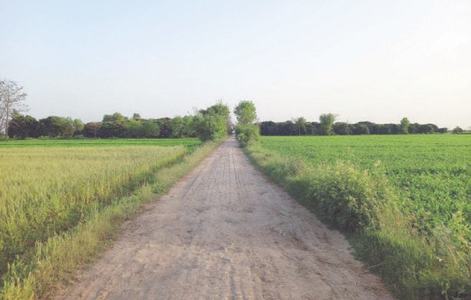Abdul Rahim (not his real name) came to Karachi in 2012 in search of work.
Hailing from South Punjab, he lost his livelihood and shelter on the farm where he worked. A relative helped him find a job in Karachi and invited him to live in his modest dwelling along Gujjar Nullah.
After three years of hard work, Mr Rahim was able to save about Rs180,000. His family had joined him so he constructed a room atop the dwelling of his relative through mutual agreement.
Whatever he earned, he invested in this asset that he wanted to become a safe and secure entity for his family.
When the demolitions began, he became extremely worried. And finally, the authorities struck and razed to the ground the cumulative investment this small clan had made for over a decade. Despite possessing “papers and proof” of ownership, the eviction did not stop.
Mr Rahim says he is asset-less again, with practically no possibility of owning any abode in the future.
Development, urban management and evictions in Pakistani cities seem to co-exist. Each development initiative pushes the poor out of their abodes, disrupts their lives and destroys their fragile assets.
Most real estate developments in Karachi commodify land as a commercial entity
The construction of Lyari Expressway in Karachi destroyed more than 25,000 houses and other establishments, mostly belonging to the urban poor. Evictions and the removal of street vendors from the precincts of Empress Market caused a loss of livelihoods to thousands of workers and small-scale entrepreneurs.
Inappropriate choices of development schemes, anti-poor designs and ruthless evictions have affected hundreds of thousands people. While hollow commitments about rehabilitating the uprooted people are made, very little implementation is observed in reality.
The poor survive on the margins of the city. Regular and formal land supply, which is a pre-requisite for housing and other urban activities, is rarely targeted to benefit the poor. There have been many real estate developments taking place in Karachi and other locations with an express objective of commodifying land as a commercial entity. These ventures aim to attract a middle and upper-middle income clientele, overseas Pakistanis and even those who possess undocumented capital resources. The social process of enabling the poor access shelter is completely denied.
It is ironic to note that the trends show a rise in migrations of the poor to cities, but no planning attempt is made to enable this vast incoming population access decent shelter.
Even people who have survived in cities for many years find it impossible to access formal property markets owing to very high price thresholds. Besides, the poor cannot fulfil the conditions laid down by the formal banking sector and mortgage markets. Formal ownership of a bankable asset is a pre-requisite for applying for any loan, which can enable the poor develop a liveable abode.
Faced with the dilemma, the poor resort to peripheral locations. These include invisible places such as nullah edges or the vicinity of graveyards where they construct dwellings. Our laws also provided a mechanism to deal with this situation.
The Sindh Katchi Abadis Authority Act of 1987 provided for examining and regularising informal settlements in a structured manner. Little activity is being done by this agency to support the urban poor in their legitimate demand for building their abodes in a legal manner. In many cases, when the courts of law were approached by the downtrodden, little or no relief was extended.
Owning an abode is the foremost economic and social asset that a poor household can dream of. It is also the most effective option for combatting poverty. An abode is not a living space alone. It is a workshop for small-scale production, a petty warehouse and a shared lodging in case of any emergency.
If regularised, the dwelling becomes a bankable asset, which enables the urban poor to move up the social mobility ladder. Access to formal and informal credit becomes possible. Large cities such as Karachi require a sizable workforce at modest wages. This labour force can only be arranged if access to dwelling of a very basic sort is made available.
Our state institutions have not extended large-scale housing initiatives to benefit the urban poor. In fact, their approaches and methodologies favoured the speculators and investors.
In other words, low-income housing ventures became an investment opportunity for the middle and upper-middle income groups. A lack of targeted land supply only made access to land a distant possibility for the actual needy.
While our lifestyles thrive on cheap labour and other forms of workforce, our policies become detrimental to the preservation of this essential human resource. Our existing institutions should take stock of the situation, initiate an appraisal of housing needs of our urban locations and extend support to the deserving in a coordinated manner.
Unabated social dislocations can cause enormous damage to the peace and tranquillity of our social fabric, eventually leading to uncontrollable social unrest.
The writer is an academic and researcher based in Karachi
Published in Dawn, The Business and Finance Weekly, March 29th, 2021













































